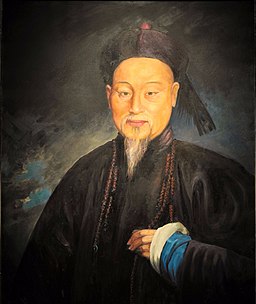“Medicinal rhubarb was commercially grown from 1777 in Oxfordshire. It had been valued as a purgative and laxative for many centuries: a bag of rhubarb was considered sufficiently valuable to have been listed in the will of Marco Polo, and in the mid-nineteenth century the Chinese official Lin Zexu, unaware that it was, by then, a familiar feature of the Victorian vegetable garden, threatened Queen Victoria with a complete ban on the export of rhubarb. His intention was to bring a constipated nation to its knees and thus to end British sales of opium in China.”
from The Silk Road: Two Thousand Years in the Heart of Asia by Frances Wood.
Personally, I wish Lin Zexu had been successful in his quest to stop (or possibly stop up) that giant pusher the British Empire and “eliminate this poison once and for all and to the benefit of all mankind.” You can read more of his letter here. It’s powerful stuff, and even today, there are those to whom it could well be posted.
“They may not intend to harm others on purpose, but the fact remains that they are so obsessed with material gain that they have no concern whatever for the harm they can cause to others.” (Sound familiar?)
Personally, I think his allusion to the possibility of China cutting off Britain’s supply of tea would have been a bigger stick than the rhubarb, given that the British Empire’s tea industry was in its extreme infancy at the time Viceroy Lin wrote his letter.
Caffeine withdrawal or constipation – which do you think would have a stronger effect on international trade?

